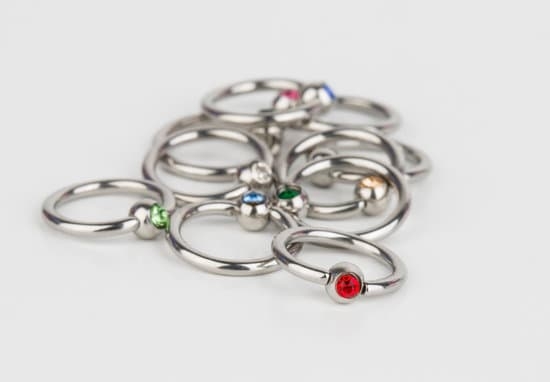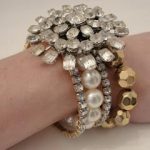African bead jewelry wholesale presents a unique opportunity to delve into the rich history and cultural significance of these intricate accessories. Beads have been used in African adornment for centuries, carrying deep meanings and traditions within their designs. From glass beads to cowrie shells, each type holds a special place in African heritage and craftsmanship.
The art of beading in Africa encompasses traditional techniques passed down through generations, as well as modern innovations that blend old-world charm with contemporary aesthetics. This dynamic blend results in exquisite pieces that showcase the creativity and skill of African artisans. Understanding the crafting process from design to finished product sheds light on the dedication and expertise required to create each piece of African bead jewelry.
For those looking to sell African bead jewelry wholesale, there are numerous benefits to be enjoyed. Not only does it provide a platform to showcase the beauty and intricacy of these cultural treasures, but it also offers entrepreneurs a chance to connect with customers who appreciate authenticity and craftsmanship. By exploring the world of African bead jewelry wholesale, one can embark on a journey that celebrates both tradition and creativity in equal measure.
Types of African Beads
African bead jewelry is known for its vibrant colors, intricate designs, and rich cultural significance. One of the most fascinating aspects of African bead jewelry is the wide variety of beads used in creating these beautiful pieces. From glass beads to cowrie shells, each type of bead carries its own unique history and symbolism.
Glass beads are commonly used in African bead jewelry due to their versatility and availability. These beads come in a myriad of colors, shapes, and sizes, allowing artisans to create stunning and eye-catching designs.
On the other hand, cowrie shells have been used in African bead jewelry for centuries and hold traditional value in many African cultures. The cowrie shell is considered a symbol of wealth, prosperity, and fertility in various African societies.
Incorporating cowrie shells into bead jewelry adds a sense of tradition and authenticity to the pieces. Additionally, other types of beads such as clay beads, wooden beads, metal beads, and gemstone beads are also commonly used in African bead jewelry, each contributing to the uniqueness of the final product.
The process of sourcing authentic African bead jewelry wholesale involves finding suppliers who prioritize quality craftsmanship and cultural authenticity. When selecting a supplier for African bead jewelry wholesale, it is essential to consider factors such as the materials used, the craftsmanship involved in creating the pieces, and whether the supplier adheres to fair trade practices.
By partnering with a reliable supplier that values both quality and authenticity, retailers can ensure that they are offering their customers genuine African bead jewelry that tells a story through its intricate designs and cultural significance.
| Type of Beads | Significance |
|---|---|
| Glass Beads | Versatile and colorful option for creating intricate designs |
| Cowrie Shells | Symbols of wealth, prosperity, and fertility in many African cultures |
| Clay Beads | Traditional option adding unique textures to bead jewelry |
| Wooden Beads | Natural materials bringing an earthy feel to the design |
The Art of Beading
African bead jewelry holds a special place in the world of accessories due to its unique combination of traditional techniques and modern innovations. The art of beading in Africa has a rich history that dates back centuries, with each region showcasing its distinct style and craftsmanship. From intricate patterns to vibrant colors, African bead jewelry is a true reflection of the cultural diversity and artistic flair of the continent.
Traditional techniques used in creating African bead jewelry include hand weaving, threading, and layering beads to form intricate designs. Artisans often incorporate symbolism and cultural significance into their creations, making each piece not just a fashion accessory but also a storytelling medium. Modern innovations have also played a role in advancing the art of beading, with new materials and technologies enabling artists to push boundaries and create truly original pieces.
When it comes to African bead jewelry wholesale, suppliers often combine both traditional techniques and modern innovations to offer a wide range of products that appeal to different tastes and preferences. Whether it’s vibrant glass beads from Ghana or stunning cowrie shell jewelry from Nigeria, African bead jewelry wholesale provides retailers with an opportunity to showcase the beauty and craftsmanship of this timeless art form.
To give you a better idea of the variety available, here are some popular types of African beads commonly found in wholesale collections:
- Glass Beads: Known for their colorful patterns and versatility, glass beads are commonly used in African bead jewelry. Artists use various techniques such as lampworking and trade beads to create unique designs that draw inspiration from nature, traditions, and contemporary trends.
- Seed Beads: These tiny beads are typically made from natural materials like wood or bone and are used to create intricate patterns in African bead jewelry. Seed beads are popular for their texture and ability to add depth to a piece.
- Metal Beads: Metals like brass, copper, or silver are often incorporated into African bead jewelry for added shine and durability. These metal beads can be hammered, etched, or cast into different shapes to enhance the overall design.
By understanding the traditional techniques and modern innovations behind African bead jewelry wholesale, retailers can better appreciate the craftsmanship involved in each piece. Whether you’re drawn to the rich history of glass beads or intrigued by the symbolic meanings behind cowrie shells, embracing the art of beading opens up a world of creativity and cultural exploration within the realm of accessories.
Crafting Process
African bead jewelry holds a special place in the world of accessories, known for its vibrant colors and intricate designs that reflect the rich cultural heritage of Africa. The crafting process involved in creating these unique pieces is just as fascinating as the finished products themselves. From the initial design stage to the final touches, each step requires skill, precision, and a deep understanding of the materials used.
To give you a better insight into how African bead jewelry is brought to life, here is a breakdown of the crafting process:
1. Design Inspiration: Craftsmen often draw inspiration from traditional African motifs, symbols, and patterns to create their designs. These can vary based on the region or tribe they are representing.
2. Material Selection: African bead jewelry can be made from various materials such as glass beads, clay beads, metal beads, or natural elements like seeds and shells. Each material has its unique characteristics that contribute to the overall aesthetic of the piece.
3. Beading Techniques: Artisans use a variety of techniques to string beads together including weaving, threading, knotting, or embroidery. These methods not only determine the look of the jewelry but also affect its strength and durability.
By understanding and appreciating the intricate crafting process involved in making African bead jewelry wholesale, we can develop a deeper appreciation for the artistry and cultural significance behind these beautiful accessories. The skillful hands that bring these pieces to life honor centuries-old traditions while also incorporating modern innovations to create truly remarkable works of wearable art.
Quality Control
Materials Selection and Authenticity
One of the key elements in maintaining quality control for African bead jewelry wholesale is the careful selection of materials. Authentic African beads are often made from natural materials like glass beads, bone beads, seed beads, and cowrie shells. Suppliers must work with experienced artisans who have a deep understanding of these materials’ authenticity to ensure that each piece reflects the traditional craftsmanship and cultural heritage of African bead jewelry.
Durability Testing
In addition to verifying the authenticity of materials used, suppliers must also conduct durability testing to ensure that the finished products meet quality standards. African bead jewelry should be able to withstand daily wear and tear without losing its beauty or structural integrity. By subjecting each piece to rigorous testing processes, suppliers can confidently offer high-quality African bead jewelry wholesale to their customers, providing them with long-lasting pieces that they can treasure for years to come.
Craftsmanship Evaluation
Lastly, quality control for African bead jewelry wholesale involves evaluating the craftsmanship of each piece. Artisans use both traditional techniques and modern innovations to create intricate designs that showcase the artistry and skill behind African bead jewelry. Suppliers must assess every detail, from the precision of the beading process to the overall aesthetic appeal of the finished product, ensuring that each piece meets the highest standards of craftsmanship before it reaches customers’ hands.
Benefits of Selling African Bead Jewelry Wholesale
Selling African bead jewelry wholesale can be a lucrative business venture with a plethora of benefits. One of the key advantages is the potential for higher profit margins. By purchasing African bead jewelry in bulk at wholesale prices, you can secure a lower cost per unit, allowing you to mark up the prices for retail customers while still offering competitive rates. This enables you to maximize your revenue and increase your overall profitability.
Expanding Your Product Range
Another benefit of selling African bead jewelry wholesale is the opportunity to diversify your product range. African bead jewelry comes in a variety of styles, designs, and colors, making it a versatile addition to any retail collection.
By offering wholesale options, you can cater to a broader customer base and attract more clientele who appreciate the unique beauty and cultural significance of these handcrafted pieces. This not only helps you attract new customers but also fosters customer loyalty by providing them with distinctive jewelry pieces they won’t find elsewhere.
Supporting Artisans and Communities
Selling African bead jewelry wholesale allows you to support artisans and communities who create these exquisite handmade pieces. By sourcing directly from suppliers who work closely with local craftspeople, you can contribute to sustainable livelihoods and help preserve traditional craftsmanship.
This ethical approach not only adds value to your business but also resonates with conscious consumers who seek ethically sourced products. By promoting the artistry and cultural heritage behind African bead jewelry, you are not only showcasing its beauty but also sharing its story with a global audience.
Finding a Reliable Supplier
African bead jewelry has gained popularity for its unique cultural significance and craftsmanship. For those interested in sourcing authentic African bead jewelry wholesale, finding a reliable supplier is crucial to ensure quality and authenticity. One tip for sourcing authentic African bead jewelry is to research the supplier’s background and reputation within the industry. Look for suppliers that have a long-standing history of working with artisans from Africa and are known for their commitment to fair trade practices.
Another important consideration when sourcing authentic African bead jewelry wholesale is to inquire about the materials used in the crafting process. Genuine African bead jewelry often incorporates traditional materials such as glass beads, cowrie shells, and natural stones sourced from Africa. Ensure that the supplier can provide information on the sourcing of these materials and that they adhere to ethical standards in their production processes.
Additionally, when looking for a reliable supplier of African bead jewelry wholesale, consider their quality control measures. Authentic African bead jewelry should not only be visually appealing but also durable and long-lasting. Inquire about the supplier’s quality control procedures to ensure that each piece meets high standards of craftsmanship before being offered for wholesale purchase.
| Tip | Importance |
|---|---|
| Research Supplier Background | Ensures authenticity and quality |
| Inquire About Materials Used | Verifies ethical sourcing practices |
| Consider Quality Control Measures | Guarantees durability and craftsmanship |
Marketing Strategies for African Bead Jewelry Wholesale
When it comes to marketing African bead jewelry wholesale, it’s important to understand the unique characteristics of this niche market and tailor your strategies accordingly. One key aspect to consider is the growing popularity of handmade and culturally inspired jewelry among consumers looking for unique pieces with a story behind them. By highlighting the traditional craftsmanship and cultural significance of African bead jewelry in your marketing efforts, you can appeal to customers who appreciate authenticity and craftsmanship.
Social media platforms such as Instagram, Facebook, and Pinterest offer great opportunities to showcase your African bead jewelry wholesale collection to a wider audience. You can create visually appealing posts featuring close-up shots of intricate beadwork, behind-the-scenes glimpses of the crafting process, or even collaborations with influencers who share a passion for artisanal jewelry. Engaging with your audience through interactive posts, stories, and live videos can also help build a loyal following for your brand.
In addition to online marketing, participating in trade shows, craft fairs, and pop-up events can be an effective way to reach potential buyers in person and showcase the quality and beauty of your African bead jewelry wholesale collection. These events provide a hands-on experience for customers to see and feel the craftsmanship that goes into each piece, allowing you to connect on a personal level and build trust with buyers.
Collaborating with other vendors or partnering with stores that align with your brand values can also help expand your reach and attract new customers who appreciate handmade jewelry with a cultural touch.
Conclusion
In conclusion, African bead jewelry holds a special place in the world of accessories, not just for its aesthetic appeal but also for the deep cultural significance it carries. The art of beadwork has been passed down through generations, reflecting the rich history and traditions of various African communities. From the vibrant colors of glass beads to the intricate patterns created with cowrie shells, each piece tells a story and represents a unique aspect of African heritage.
When considering selling African bead jewelry wholesale, one must appreciate the craftsmanship and quality that goes into creating each piece. By understanding the traditional techniques and modern innovations used in the crafting process, sellers can ensure that they are offering authentic and durable products to their customers. This attention to detail not only adds value to the jewelry but also helps preserve the art form and support local artisans who keep these traditions alive.
Finding a reliable supplier for African bead jewelry wholesale is essential to maintaining authenticity and building trust with consumers. By sourcing ethically made products from reputable sources, sellers can be confident in the quality of their merchandise while supporting fair trade practices.
With the right marketing strategies in place to reach target audiences who appreciate the timeless beauty of African bead jewelry, sellers can truly showcase the unique craftsmanship and cultural significance behind each piece they offer. Ultimately, embracing African bead jewelry wholesale allows both sellers and buyers to connect with a centuries-old tradition that continues to inspire admiration and appreciation worldwide.
Frequently Asked Questions
Where Do African Tribes Get Their Beads?
African tribes get their beads from a variety of sources, including trade networks, local markets, and even within their own communities through traditional bead-making techniques. These beads can be made from materials such as glass, plastic, wood, or metals.
What Do the Colors of African Beads Mean?
The colors of African beads hold significant meanings and symbolism within different cultures and tribes. For example, red can signify blood, life force, or vitality; blue may represent the sky or water; green could symbolize fertility or growth; while white often denotes purity or spirituality.
What Are African Necklaces Called?
African necklaces can go by various names depending on the tribe or region they originate from. Some common terms include “trade beads necklace,” “waist beads,” “beaded choker,” “ethnic bead necklace,” or simply described based on the materials used like “glass bead necklace” or “cowrie shell necklace.” Each type carries its own cultural significance and history.

Welcome to my jewelry blog! My name is Sarah and I am the owner of this blog.
I love making jewelry and sharing my creations with others.
So whether you’re someone who loves wearing jewelry yourself or simply enjoys learning about it, be sure to check out my blog for insightful posts on everything related to this exciting topic!





